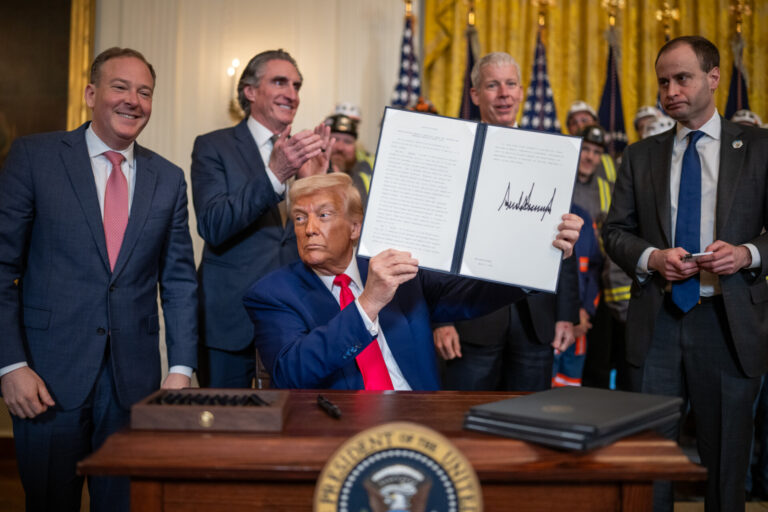Dominion Energy loses some of its legislative champions in Virginia primaries

UPDATE: After publication, the official list of candidates certified for the November ballot was released by the Virginia Department of Elections, showing Scott Surovell and Adam Ebbin both have general challengers from the Republican Party.
In an election cycle that promises to reshape Virginia’s politics on utility, energy and climate policy, Dominion Energy is spending big, but primary results show that the monopoly giant’s grip on power in the Commonwealth may be slipping.
All 140 seats in the Virginia General Assembly are up for re-election this year, with redistricting forcing competitive primaries and unexpected retirements. Dominion, historically one of the biggest political spenders in a state that has no limits on corporate contributions to campaigns, has already spent nearly $4,000,000 on candidates this year to maintain its grip on the General Assembly, according to the Virginia Public Access Project.
Dominion spread its dollars among 65 candidates. 43 of those candidates are still running and eight lost their primaries, including Lionell Spruill, a longtime Senator who has carried legislation favorable to Dominion.
Virginia has long been viewed as a state friendly to its electric monopoly utilities, especially Dominion Energy and Appalachian Power. Both utilities are regulated by the State Corporation Commission (SCC), which is responsible for setting fair rates for consumers.
Unlike the 39 states where utility regulators are appointed by governors, or the nine where they are elected, Virginia is one of only two states that selects commissioners via election by the General Assembly, whose members also pass legislation that determines how utilities are regulated. Dominion has used its legislative influence to shape a series of bills that gave Dominion outsize power to raise electricity rates, skirt regulation, and earn excessive profits. However, a rise of successful utility reform legislation highlights a new generation of legislators committed to curtailing the utility’s excessive influence.
Primary outcomes suggest increased appetite for Dominion accountability
Three of the five incumbent senators who lost their primaries were heavily funded by Dominion. Senators Morrissey, Spruill, and Barker all received over $100,000 from the utility to retain their seats in the General Assembly. Two of those seats were lost to candidates who support reining in Dominion’s influence.
Lashrecse Aird defeated Sen. Morrissey, who said the loss ended his 30 years in elected politics. Aird is a former legislator critical of Dominion’s role in high utility bills, writing in an opinion essay that high energy bills were causing “communities of color [to] disproportionately make serious sacrifices to afford utility bills.”
Aird received an endorsement and $275,000 in campaign contributions from Clean Virginia, a group established to challenge Dominion’s political influence. The group also endorsed Stella Pekarsky, who defeated Sen. Barker. Pekarsky has called Dominion “a state-regulated polluter” and supports a ban on its contributions to state legislators.
Dominion spent $200,000 to directly help Sen. Barker survive his primary challenge. Sen. Barker also received the support of Power for Tomorrow, a utility front group that is funded by Dominion and has spent politically on behalf of the utility. The group created mailers and conducted polling on Sen. Barker’s behalf.
Power for Tomorrow has worked to defend the Commonwealth’s current electric monopoly market structure, but it appears to have adjusted its political strategy to support Dominion’s efforts to stay relevant and afloat in the shifting General Assembly. This past session, Dominion Energy was able to rely on key players, like Senators Morrissey, Barker, and Spruill, to negotiate on its behalf and defend the utility’s interests. Losing these legislators may force Dominion to not only to retain its current champions, but to find new ones.
Shifting political landscape accelerated by redistricting
Virginia’s decadal independent redistricting process challenged the viability of long-serving legislators and forced at least 20% of the General Assembly into retirement. Long-serving legislators have retired instead of competing in new and unfamiliar districts, like Senate Majority Leader Dick Saslaw (D) who received at least $660,000 in donations from Dominion since he was first elected to the Senate in 1980, according to the Virginia Public Access Project.
Before retiring, Sen. Saslaw led a legislative attempt to increase Dominion’s profits after a season of underperformance. Saslaw introduced Senate Bill 1265 two months after Dominion’s stock was downgraded to “neutral” by Credit Suisse and “underperform” by Bank of America. The bill requested legislators to approve a sizable bump in Dominion’s return on equity, a marker of a utility’s ability to earn profit.. The SCC typically sets the utility’s earnings, profits and rates during triennial reviews; Senate Bill 1265 expedited the process.
The bill easily cleared its first hurdle in the Senate Commerce and Labor Committee, stacked with Dominion-funded legislators, but underwent major changes before the bill landed on Governor Youngkin’s desk. Dominion’s original request for a return on equity jump from 9.35% to 10.07%, costing customers an extra $4 billion, was rejected. Instead, the return on equity settled at 9.70% and base rate-setting authority was restored to the SCC, a power stripped from the commission in 2015.
Dominion has long relied on its beneficiaries in the Senate Commerce and Labor Committee to block punitive bills and advance favorable ones, but 8 of those 14 Senators are leaving their posts, due to defeat or retirement.
Those shifts could clear the way for utility reformists who have sought to lower rates or reform Virginia’s monopoly system to increase protections for consumers.
Dominion rebuilding its bench
Dominion spent close to a quarter of its money, or $900,000, this year on incumbents with no challengers and a secured seat in the General Assembly.
With redistricting and retirements resulting in vacated seats, new contenders, like Senators Surovell and Locke, will be considered to lead the Senate Democratic Caucus. Investing in potential Party leaders highlights Dominion’s focus on preserving key relationships in this changing political environment.
“Greening Virginia’s Capitol in Richmond, Va.” by chesbayprogram is licensed under CC BY-NC 2.0
Correction: A table in a previous version of this article said David Marsden lost his primary. He defeated his opponent, Heidi Drauschak.



